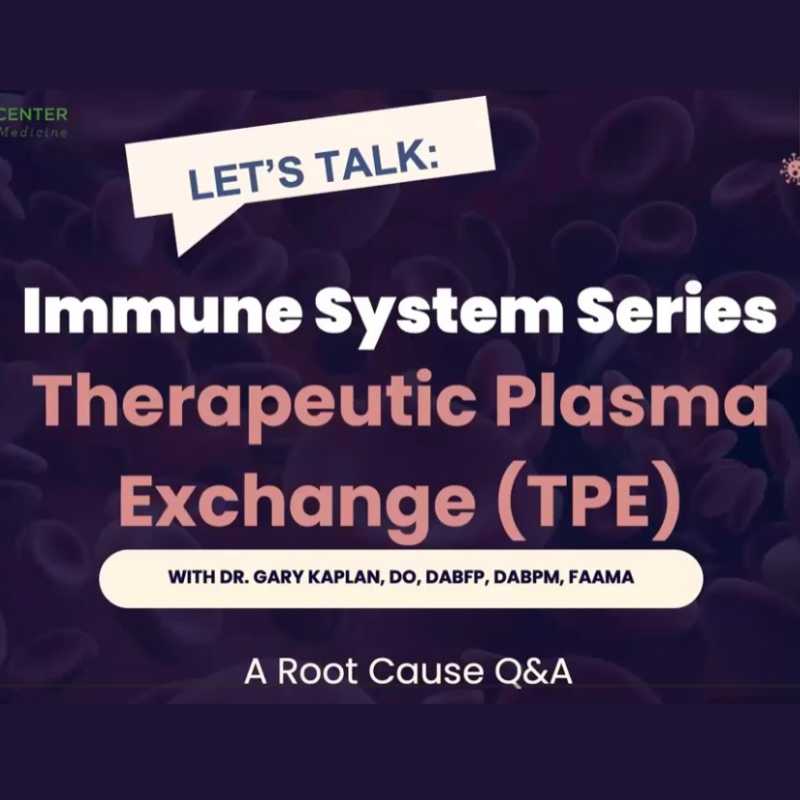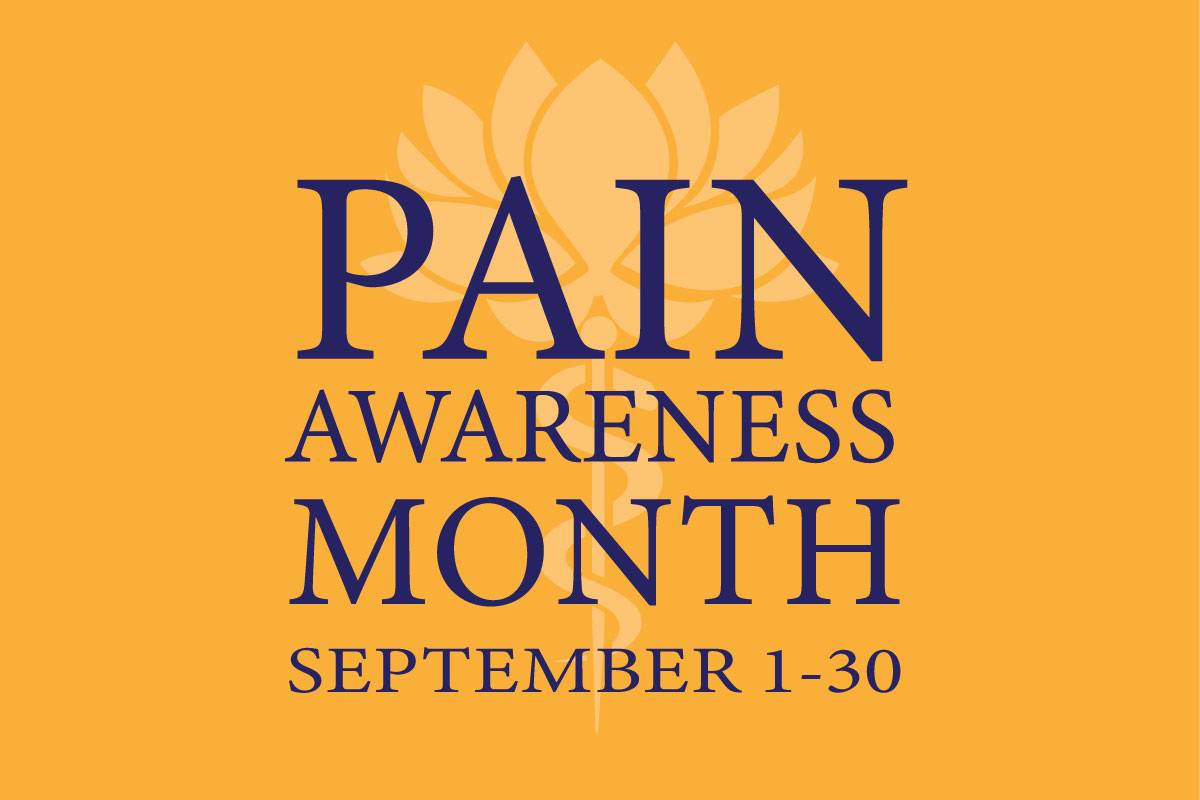
5 Ways We Can Keep Your Immune System Strong
December 10, 2025/by Kaplan Center
Want to Take Your Workout to the Next Level Next Year? These Tips Can Help
December 8, 2025/by Kaplan Center
Dr. Kaplan’s Dos and Don’ts of the Holiday Season
December 3, 2025/by Kaplan Center
Let’s Talk Webinar – A Root Cause Q&A
December 2, 2025/by Kaplan Center
Navigating Holiday Meals with Gut Issues: Simple Tips for a Comfortable Season
December 1, 2025/by Chardonée Donald, MS, CBHS, CHN, CNS, LDN
Craniosacral Therapy for TMJ | Say Goodbye to the Daily Grind
November 19, 2025/by Patricia Alomar, M.S., P.T.
From Compassionate Care to Personal Healing: A Letter to My Patients
November 18, 2025/by Kaplan Center
8 Steps to a Healthier Gut—and a Longer, Healthier Life
November 18, 2025/by Kaplan Center
Mid-Life Irritability & Fatigue Improved by Hormonal Balancing
November 13, 2025/by Lisa Lilienfield, MD
From Challenges to Change: Dr. Kaplan on Healthcare’s Biggest Challenges
October 29, 2025/by Kaplan Center
Overlooked Dangers of Mold Exposure and How to Stay Safe – Dr. Kaplan Talks to WUSA9
October 27, 2025/by Kaplan Center
Let’s ‘Fall’ Into Wellness: A Nutritionist-Approved Immune-Boosting Recipe for Cold and Flu Season
October 13, 2025/by Chardonée Donald, MS, CBHS, CHN, CNS, LDN
PANS/PANDAS – When Sudden Symptoms Signal Something More
October 9, 2025/by Kaplan Center
Beating Burnout, A Nutritionist’s Perspective
October 1, 2025/by Chardonée Donald, MS, CBHS, CHN, CNS, LDN
3 Things That Can Happen After Stopping GLP-1s
September 11, 2025/by Chardonée Donald, MS, CBHS, CHN, CNS, LDN
What Families Need to Know About COVID and Flu Season
September 3, 2025/by Kaplan Center
September is Pain Awareness Month
September 1, 2025/by Kaplan Center
Dr. Kaplan Spoke to Northern Virginia Magazine About COVID, Flu, and Immunity — Here’s What You Should Know
August 14, 2025/by Kaplan Center
“Why Do I Feel Like Crap?”: The Overlap Between Long COVID and Perimenopause
July 30, 2025/by Kaplan Center
Why People Are Turning to EMDR (and Why You Might Want to Too)
July 23, 2025/by Kaplan CenterAre you looking to improve your overall wellness?
Personalized care you can trust.
Our integrative, non-surgical treatment approach is highly successful in maintaining wellness and also treating chronic pain and illness. For more than 30 years, we have delivered superior, cutting-edge health care in the Washington, DC area.
QuickLinks
Contact Information
Tel: 703-532-4892
Fax: 703-237-3105
6829 Elm Street, Suite 300
McLean, Virginia 22101
Map It
Hours of Operation
Mon – Thu : 8 am – 5 pm, ET
Fri : 8 am – 12 pm, ET
Are Hidden Food Allergies Making You Miserable?
/in Digestive Issues, Nutrition/by Gary Kaplan, DOHow to figure out if food allergies are causing inflammation—and making you hurt
Sure you should eat that?
When it comes to chronic pain and depression, there’s no reason why you “just have to put up with it.” We now know that these states—and a host of conditions that accompany them—are caused by the inflammation of microglia in the brain. The microglia (your brain’s immune cells) turn on inflammation, and when they reach a tipping point, they become hyper-reactive, after which the slightest assault can set them off, triggering system-wide inflammation that can be difficult to stop.
This means that we have more reason than ever to eat well, exercise, meditate and make sure our bodies have the nutrients they need—avoiding the foods that are the likely culprits for allergies and sensitivities.
Here’s how to figure out if your diet is what’s causing your inflammation:
Try a low-inflammation diet
For 6 weeks eat only brown rice, fish, chicken, eggs, fresh fruits, and vegetables. This diet eliminates most of the foods people are allergic or sensitive to, such as wheat, soy, and milk products. Organic, grass-fed beef can be included in the diet as well.
Start an “eating and aftereffects” diary
When you’re trying a low-inflammation diet, it’s important to keep a food diary. In addition to writing down what you eat and when you eat it, you will also check back in with yourself throughout the day to see how the food made you feel. Allergies and food sensitivities may not show up for hours after you eat the offending food or spice, but if you are alert, you’ll increase the odds of making connections between the food and your response. Be sure to write down exactly how you feel at the beginning of the diet, so you can make an accurate comparison in 6 weeks.
Avoid stimulants
This means no caffeinated coffee, tea, or alcohol. It also means no NSAIDS to inflame your gut. If you typically drink more than 2 cups of coffee a day, it might be best to cut your consumption in half every few days until you are coffee-free. If you normally drink 6 cups, cut it down to 3 cups for a few days, then 1.5 cups for a few days. After a week or two easing off caffeine, you should be able to go without coffee and not get a headache.
Questions? Give Us a Call!
703-532-4892 x2
Evaluate your process
Rate the following factors in your diary: Energy Level, Ability to Focus and Concentrate, General Pain Level, and Specific Pain Level. Complete the diary at the same time every day. Feel free to add comments about your sleep, digestion, and any other aspect of your health or mood. Make note of any unusual life events.
Add back foods
After 6 weeks, gradually add back new categories of food, one at a time, one week at a time. A good food to start with is dairy. Pay close attention to whether bringing dairy back causes gas, bloating, or other reactions. The next week, add soy products, such as tofu, soybeans, miso, and soy sauce. The following week, add wheat, such as bread, cereal, pasta, and canned or frozen foods with wheat fillers.
You will be the best judge of whether or not these foods have a negative effect on your energy level, your mood, or your ability to concentrate.
Signs of allergies
If you lose as much as 5 pounds or more the first week, it may be a sign that you’ve been eating foods you’re allergic to and your tissues have been swollen. Other signs of allergies include migraines, numbness in the arms or legs, inability to focus, poor concentration, fatigue, depression, brain fog, headaches, mood fluctuations, itchiness, sneezing, gas, diarrhea, sinus congestion, and skin rashes.
Delayed reactions are not uncommon. You may get a headache in the morning from something you ate the night before. This is why it’s important to add foods back into your diet very slowly.
Prepare for the toughest part
It’s likely that the first 2 weeks will be the hardest. Old habits can be tough to change. The next difficult part comes at the end, after the 6 weeks, when you are feeling better but starting to add in new foods. It can be frustrating to learn that you are having a negative reaction to one of your favorite foods. Maybe you add gluten in for a few days, but soon realize you’re experiencing bloating, congestion, and brain fog. Many people will ask: “Does this mean I can’t eat wheat anymore?!” The truth is: You can eat whatever you want. It depends on whether or not you’re willing to accept the consequences.
Published date: Apr 10, 2014 / This article was first seen on Prevention.com. Read more about the new connection between inflammation and chronic pain — and what scientists are doing about it — with Is Depression Ever Just Depression?
We are here for you, and we want to help.
Our goal is to return you to optimal health as soon as possible. To schedule an appointment please call: 703-532-4892 x2
5 Steps to Happier Holidays
/in Lifestyle/by Gary Kaplan, DOGreetings & Happy Holidays!
‘The holidays can be an intense time for many of us, with parties, travel and house guests, shopping, cooking, and more …. making it quite easy to get overwhelmed. So I would encourage you to try to slow down if you can – doing so really can help make the holidays more joyful and less stressful! Here are 5 ways that you can try to take it easier on yourself at this time of year:
As always, you have our best wishes for your optimal health,
Gary Kaplan, DO & the Kaplan Center Staff
I take Tylenol or Advil every day. Am I killing myself?
/in Featured Press/by Website Administrator